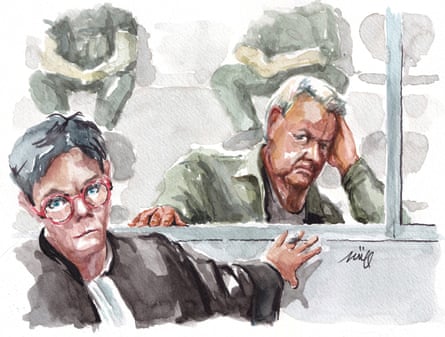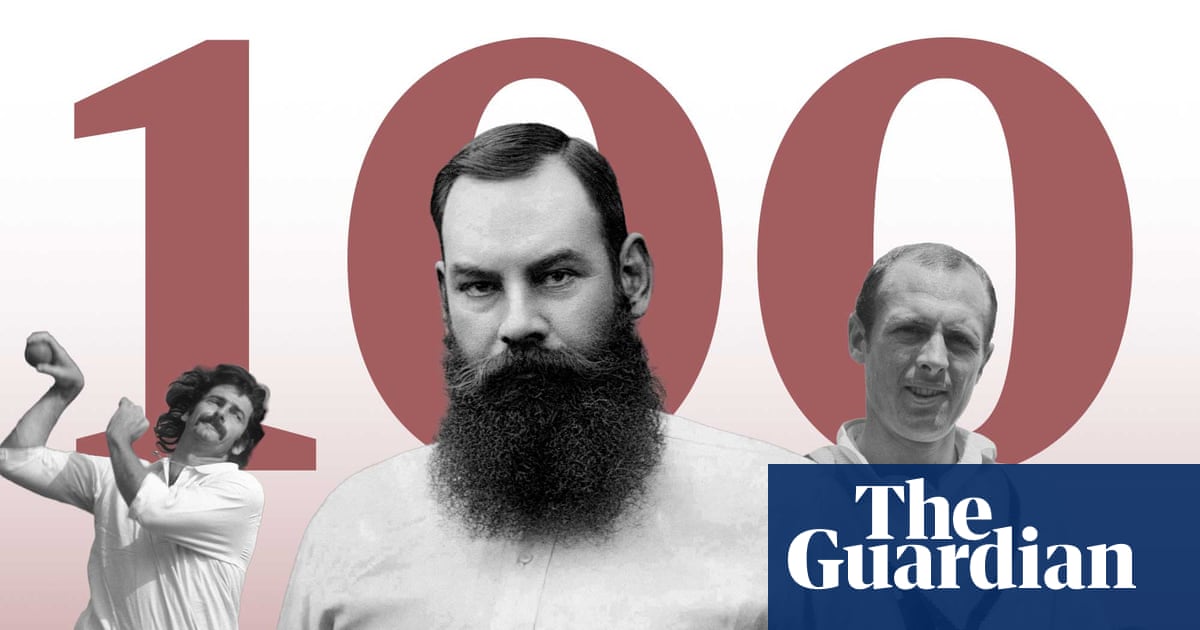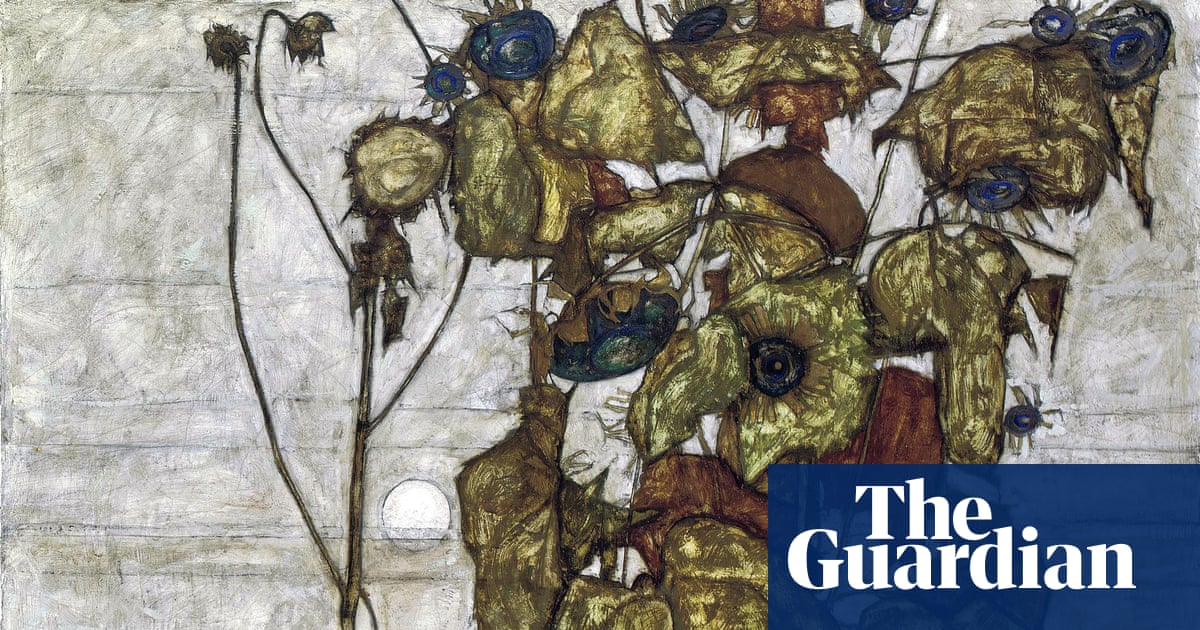This time last year, Béatrice Zavarro, a then unknown lawyer from Marseille, drew herself up to her full 1.45-metre (4ft 8in) height, and addressed the figure in the dock: “It’s you and me against the world.”
That man was Dominique Pelicot. Over the next three months and 17 days, the court would learn that for almost a decade he had drugged his wife, Gisèle, and invited more than 50 men into their bedroom to rape her while she was unconscious.
Zavarro’s decision to defend a man who would become France’s worst sexual predator brought threats, shouts of “How could you?” from protesters outside the court and a grim nickname: the Devil’s Advocate. She maintained a clear and uncompromising line: she was defending the man, not his crimes.
For the 55-year-old criminal lawyer, as for many in the court in Avignon, the unprecedented trial was a life-changing experience – so much so that she has written a book about it. “There is a before and after Pelicot,” she says, sitting in the reception of a boutique hotel in Paris where we meet. “I’ve tried to get back to a normal life but there is a difference.
“The trial was long and intense with the cameras, the media attention, but when it was all over I had to pick up my work. One reporter told me, ‘You know, we journalists enter your life very suddenly but we leave it equally suddenly,’ so I had been warned. The cameras were on me for a while, then they weren’t and it was back to normal life and anonymity …”
Not quite true, I point out. She laughs.
“Well, not so anonymous, because people recognise me. They come up to me in the street and ask if we know each other. I reply, hmmm, not necessarily, but you know …”
Today, Dominique Pelicot, 72, is in solitary confinement in prison, where he must serve at least two-thirds of the maximum 20-year sentence imposed last December for raping his wife and soliciting others to do so. He is also under investigation for the rape and murder of an estate agent in Paris in 1991 and an attempted rape in 1999.
Zavarro will represent him if the cases come to trial and visits him at least once a month to prepare his defence. She is his only visitor.
“Today, I believe I can say I know him better than anyone, including his own family,” she says.

Zavarro says Pelicot has accepted his situation with “fatalism” but seems distraught his actions have destroyed the rest of his family. His daughter, Caroline, remains convinced her father also photographed and abused her and no longer speaks to Gisèle Pelicot, 72. “My mother isn’t an icon … not to me,” Caroline said in a recent interview. “We no longer have a father or a mother today.”
Zavarro shakes her head. “What a terrible thing to say about her mother. Terrible,” she says.
“He [Dominique Pelicot] always said he never touched his daughter or any of his children or grandchildren,” says Zavarro. “There was a moment in the trial when I said: ‘Monsieur Pelicot, we’re going to pretend it’s just the two of us, and we’re going to speak of this.’ I thought at that moment he would be encouraged to say yes, he took those photos, but he said, ‘No, it wasn’t me.’ And I believe him.
“We had spoken of this before and he had looked me in the eyes and said, ‘I did not take those photos.’ Some will say I was naive, but I believe him.”
She continues: “He could have appealed against the minimum sentence imposed but it would have meant another trial and he said he wouldn’t put his wife through that. He said she had suffered enough.
“The split within his family is terrible for him. He is watching the rupture between mother and daughter from afar and he has taken it very, very badly. He didn’t expect to have any relationship with his children after what happened. During the trial he said he would die alone like a dog, but he would have liked above all for the family to remain united. That there is this split is his greatest grief.”
Zavarro met Dominique Pelicot in 2021. At the time, she had no idea the case would grow to such horrific and unforeseen proportions, as police combed through the hundreds of videos Pelicot had recorded of his wife being attacked by multiple men.
Dominique Pelicot was being held in Marseille’s Baumettes prison in 2021, after being arrested for filming up a woman’s skirt in a supermarket in September 2020. When police confiscated his phone and searched his home, they found thousands of photos and images of rape on his computers and hard drives. While being detained, Pelicot wrote to Zavarro asking if she would represent him in the mass rape trial. She agreed.
“At the beginning, I didn’t know exactly what he had done. I was given the list of alleged charges and saw there were quite a few offences, but I had no details,” she says. “My first impression of him was a grandfather, a sort of Father Christmas figure. He was clearly intelligent and communicated in a crystal clear, simple way. At that first meeting, he told me everything.”

In her book, Defending the Undefendable, Zavarro writes that she once saw a brief flash of another side to her client. “Our eyes meet, his eyes narrow, and in that moment I sense the predatory tiger.” Still, she did not hesitate in accepting the case – and not for the publicity. At the time, it was assumed the trial would be held in camera with no press or public present.
“I accepted because I am a lawyer. I was very clear: I defended the man, not what he did. I did not seek to justify what he did, but to explain. I understand some lawyers might have refused the case, but my position was that I had taken an oath as a lawyer and this position was right,” she says.
“If he had decided to plead not guilty, or go for an acquittal, which would have been astonishing given the evidence, I’d have still taken the case, but would have written to him outlining the risks he was running. And I’d have asked if he was joking.”
Zavarro says it was equally evident that Gisèle Pelicot was beyond reproach. During the trial, she told me: “Gisèle Pelicot is not my enemy”. Today, her approach is the same. “What could I possibly have blamed Mme Pelicot for?” she asks. “It was a unique case where the order of things was overturned. All the sympathy was with her, which isn’t always the case in a classic rape trial where there is always something the defence finds to blame on the victim. In this case it was impossible.”
On the first day of the trial, Zavarro strode across the courtroom to where Gisèle Pelicot was sitting surrounded by her legal team, Stéphane Babonneau and Antoine Camus. “I shook her hand and introduced myself,” Zavarro writes in her book. “She gave a slight smile without saying anything. With this mark of courtesy I felt true to myself and my desire to show her all the respect she inspired in me. I didn’t see why I should be the only woman in this courtroom, in this judicial district, in this city, in this country, not to pay her a discreet, silent tribute.”
Defence lawyers representing the 50 men on trial along with Dominique Pelicot for rape and sexual assault had initially tried to hint that his wife was complicit in the abuse. However, this was dispelled by the shocking videos, in which Gisèle was clearly unconscious and snoring.
There were also claims by defence lawyers for the other men in the dock that they been tricked and manipulated by Dominique Pelicot.
“My job was to say: no, you weren’t,” says Zavarro. “You knew when you went into that bedroom that you would find an unconscious woman. With the videos, they could not say they did not know what they were doing.”
The president of the court, Roger Arata, had sought to have the videos excluded from public view as an affront to public decency. “It was Madame Pelicot who battled to have the videos shown because she wanted them seen by everyone, which was astonishing,” says Zavarro. “She showed amazing courage. It’s thanks to her that we were all there, that the case and the debates took on the importance they did. The first time I saw them during the investigation I was extremely shocked, but imagine the same trial without the videos.”
Zavarro is instantly recognisable in her scarlet-framed spectacles and large, colourful jewellery. But that may be a distraction from what is evidently a core of steel. She chose to defend Pelicot solo – Gisèle Pelicot had two lawyers – and whether in or out of black court robes, she appears unflappable, diligent and remarkably self-effacing for someone promoting a book. Her husband, Edouard, who many at the courthouse initially assumed was her security guard, is on hand as he was every day of the trial to provide good humour, moral support and advice.
For the Pelicot case, as with others she has defended, she says she applied her fundamental belief that there is humanity in everyone and her job is to find it. She agrees with the psychiatrists and psychologists who analysed Pelicot and told the court that he suffers a split personality caused by a deeply troubled upbringing, a tyrannical father and being sexually abused while in hospital as a child. He is a classic Jekyll and Hyde: a kind, attentive husband, father, neighbour and friend by day; a monster by night, she says.
In her trial summing up, punctuated with literary references, she concluded: “You are not born a pervert, you become one.”
“Gisèle Pelicot thought she was living with this one man, but in fact she did not know the other side of that man. All the accused men in that court had a double life. They were all living a lie at some level,” Zavarro says.
Asked if she thinks Pelicot deliberately chose her because a female lawyer would help his case, she turns the question around: “You can ask if Monsieur Pelicot chose me because I am a woman, but are you going to ask Mme Pelicot why she chose two men to defend her?”
Today, Gisèle Pelicot is rebuilding her life and has not spoken publicly since the trial. She has been made a member of the Légion d’honneur, the highest and most prestigious national order of merit in France, and is also writing a book, due to be published next year. Her “shame must change sides” has been adopted as a popular slogan and the trial resulted in a proposed change in France’s sexual consent and rape laws. A bill defining rape and sexual assault as “any non-consensual act” was passed by the upper house, the Sénat, in June, but a final draft has yet to be presented to parliament.
Of the 17 men who initially lodged appeals after their convictions, 16 have now withdrawn them, and the one remaining case will be heard at the court of appeal in October.
Zavarro says Dominique Pelicot has no contact with the rest of the prison population and spends his time reading, writing and watching television. He is writing a book. “There are things in the process,” she says, adding: “Nobody will forget this trial: it changed many things, particularly a certain kind of thinking.
“Today I hear of women rape victims who appear in court and insist the hearings be open ‘because Gisèle did it’, and men who have been forced to examine their mentality and behaviour. The Pelicot case set light to everything.”

 2 months ago
37
2 months ago
37

















































